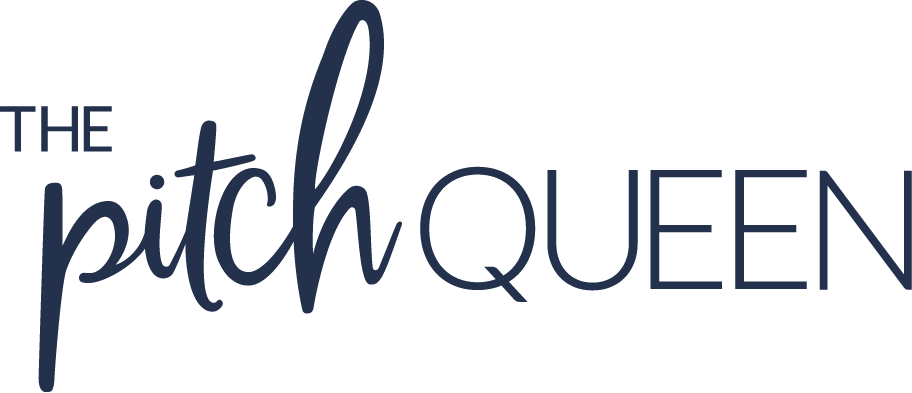
Are you prequalifying clients, or do you take on any client that walks through your door?
We all have those moments of weakness, especially when we’re just starting out in business.
You need a sale. You’ve been waiting for someone to show a shred of interest in what you’re offering. Then FINALLY, you get a knock on the door.
But something seems a little bit off about this prospect. The red flags are flying, and your gut is saying NO. But for whatever reason, you close your eyes, make an offer, and hope that you’re wrong.
Pretty soon the relationship has become a nightmare.
I bet it’s happened to you. That moment when you had a gut-check, truth-bomb moment on a sales call telling you to RUN. But against your better judgment, you said OK and hoped for the best.
And then spent the next several weeks, months, or even years trying to find a way out.
Now it’s too late, and you realized what you should’ve done before: gotten better gatekeepers. I mean a system to filter out the clients that don’t quite fit. A process for prequalifying clients that nips less-than-ideal relationships in the bud and frees you up for the clients that light you up.
The right clients will make your life magical. But the wrong ones will send you down the road to misery. They’ll cost you time, stress, money, and sanity. Not worth it for a quick sale, no matter how desperate you think you are.
How do you make sure that only the right clients make it through your door? By enlisting “gatekeepers” in the form of a solid process for prequalifying clients.
What constitutes a prospect-filtering system that’ll bring you a stream of dream clients while sending the nightmare ones on their way? It starts, as all things in your business do, with YOU.
Start by considering the way you show up online, in person, and everywhere.
My friend, colleague, and regular Coffee Is For Closers contributor, Shameca Tankerson, puts it like this…
“When you’re talking to potential clients, you’re not auditioning for American Idol. You’re not tap-dancing, saying ‘look how smart I am, look what my company can do for you!'”
What happens when you try too hard to please the entire world rather than just showing up, standing in your power, and being yourself?
“When you’re in that state, you’re not in a position of power where you can make a level-headed decision,” says Shameca. “It’s not the space you want to be in when you’re making a decision about a potential client.”
In other words, it puts you in a place to say YES to a client out of desperation, people-pleasing, and the fear of hurting someone’s feelings.
But when you decide to own your worth and speak your truth rather than pandering to everyone, your filtering system naturally kicks in on its own.
“With people like us who are service-based professionals, our personalities become filters. Some people are going to love me, some are not.” says Shameca. “Some people are going to love my purple hair. Others will be like, ‘No, you can’t have purple hair and serve my company.’”
Whether or not everyone loves you isn’t the issue. What matters is that you’re calling in the ones who WILL from moment you show up.
So start with making your content reflect your vision, your values, and your personality. That alone will set the stage for a filtering system designed to deliver the right people to your door.
Every step in the filtering process is a checkpoint. It starts with messaging. And if your leads hang around for awhile, they might be ready for the next step of prequalifying clients: an application for a sales call.
Shameca tells us a little bit about what it takes to get a coveted spot on her calendar for a sales call.
“I have an application process where I ask qualifying questions. Not just random questions. And if someone doesn’t answer them correctly, it’s ‘Do not pass GO, do NOT collect $200.’” says Shameca with a laugh.
Monopoly terms aside, there’s a reason to keep the process strung pretty tightly.
“I have people who go to my application page and then say they don’t have time to fill it out. If you can’t take time out of your day to answer 10 questions now, when I ask you do to something to make an impact on your business, you’re probably going to give me some sort of reason why you don’t have time.”
A few simple but pointed questions tells you a lot about a potential prospect’s mindset. They show you how serious someone is about working with you, and gives you several hints about their commitment level.
When you know all that about someone up front, you can make an informed decision about whether or not they’re a call-worthy candidate. And that alone can save you days, weeks, and months of aggravation, stress, and money.
Simple but powerful stuff, right?
The pre-qualification process is also a chance to address the elephant in the room of any sales conversation before it becomes an issue: money.
“The biggest objection you normally get on a call is, ‘I can’t afford it,’” says Shameca. “So I talk to my clients about money up front. We ask on the application if they’re ready to invest this particular dollar amount.”
If the client is ready, willing, and able to invest at your level, you know right away. And if the client isn’t ready, you’ve spared them the awkwardness by allowing them to bow out gracefully.
Just another way that the pre-qualifying process cuts to the chase and saves you a ton of stress!
So when you shift from a place of “always be closing” to “always be qualifying,” what results do you get for your top-line revenue?
“We probably get a lower number of sales calls with potential clients. But the quality of the people who show up to that final decision-making, mutual-fit conversations that we have is so much higher that we actually have a higher closing ratio,” says Shameca.
So in the end, it’s the quality of sales conversations that matters the most. And the more you screen your prospects, the more likely that the best ones will get through. Maybe fewer calls overall, but more calls with ideal clients who are ready to say “Let’s DO this!”
It’s essentially taking care of the FAQs before you get on the phone. It’s showing them up front what you’re all about and what you can do for them. Then taking it to the next step by asking the deeper questions in the application process.
“I think that the best sales happen as a byproduct of the qualification on the front end,” says Shameca. “Just remember that you get to choose who your clients are, who you get on the phone with.”
The more you qualify your prospects up front, the less hassle you’ll have down the road. And of course, the more likely that a client relationship will produce mutually beneficial results.
Are you ready to start sorting the YAYs from the NAYs in your business? Make it easy on yourself and create a system for prequalifying clients. Spare the less-than-ideal clients the time and make it a “win-win” scenario for everyone.
Grab my NEW guide “Ideal Clients ONLY: 5 Steps To Pre-Qualifying Prospects And Clients BEFORE The Sales Talk!”
Set everyone up for the best possible experience with your business by answering the tough questions before you get on the phone. Get the guide HERE!










